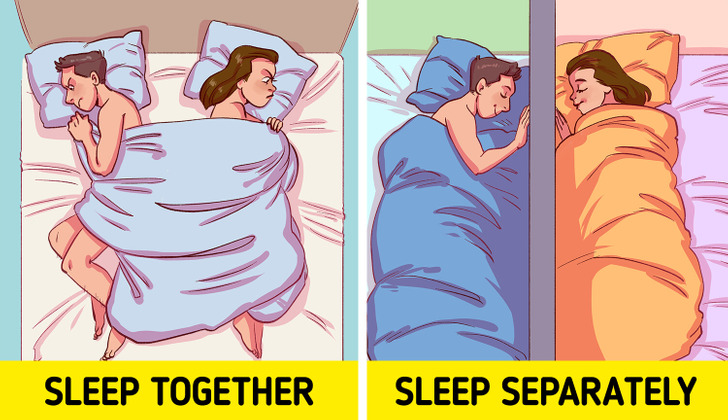Most people recognize the obvious warning signs of a troubled marriage—frequent fights, broken trust, or cheating. However, there are also quiet, easily missed indicators that can hint at deeper issues beneath the surface. According to researchers and relationship specialists, these subtle cues may serve as early warnings that a relationship is beginning to falter, well before serious conflicts become apparent.
1. “Hollywood romance” at the beginning of the relationship

Though a whirlwind romance might appear to be the ideal foundation for a lasting marriage, studies indicate that this intense beginning can actually work against long-term success. Relationships that launch with overwhelming passion and storybook-like intensity often face challenges in sustaining that emotional high.
As the initial excitement naturally diminishes, couples may misinterpret this shift as falling out of love, rather than recognizing it as a normal part of deepening intimacy. Interestingly, partnerships that develop gradually and without dramatic flair often build more resilient connections and are more likely to endure over time.
2. Avoiding conflict

While it may appear that steering clear of conflict signals a strong relationship, the opposite can be true—avoiding disagreements can quietly damage a marriage. Ignoring issues doesn’t resolve them; instead, it creates space for resentment to grow unnoticed.
Consistently suppressing your emotions to maintain harmony can come at a personal cost, as unmet needs and unspoken frustrations slowly undermine the emotional core of the relationship.
3. If you marry too young.

Age can significantly influence the likelihood of a successful marriage. According to findings from the University of Utah, couples who marry between the ages of 28 and 32 are more likely to enjoy lasting unions, largely because they possess a more developed perspective on commitment.
Getting married too early can mean stepping into lifelong responsibilities—like financial planning, conflict resolution, and personal development—without the necessary maturity or self-awareness. While some younger couples defy the odds, entering marriage before fully understanding oneself can heighten the risk of future separation.
4. Not implementing “sleep divorce.”

While sharing a bed is often seen as a staple of married life, it can sometimes create friction between partners. Conflicting sleep habits, snoring, or constant movement can disrupt rest, leading to fatigue, frustration, and emotional strain.
To combat this, many relationship experts advocate for a “sleep divorce”—the practice of sleeping in separate beds or rooms. Though the term may sound negative, it’s not an indication of relationship problems; rather, it’s a proactive strategy to improve sleep quality and, in turn, support a healthier, more harmonious partnership.
5. Contempt for your partner

Contempt can be one of the most damaging forces in a marriage. When a partner habitually communicates with a sense of superiority—using sarcasm, belittling remarks, or dismissive gestures—it gradually erodes the respect that healthy relationships rely on.
Small actions like eye-rolling, sneering, or mocking may appear insignificant, but they often reflect underlying bitterness. Relationship researchers identify contempt as a major red flag, warning that it severely disrupts constructive dialogue and is one of the clearest indicators that a marriage may be heading toward collapse.
6. You no longer look forward to being together.

Marriage thrives not just on love, but on friendship, companionship, and the simple joy of being together. While it’s healthy for partners to have separate interests and personal time, it becomes concerning when one or both begin to deliberately avoid shared time.
Losing interest in date nights, meaningful conversations, or everyday interactions often signals a growing emotional gap. When couples no longer seek each other’s company or share common experiences, the relationship can begin to feel more like an obligation than a supportive union.
Job interviews are stressful enough on their own—but imagine if you were being evaluated in ways you didn’t even notice. That’s the idea behind the “Chair” Method, a discreet technique some recruiters use to gather insight into a candidate’s character and behavior without their awareness.